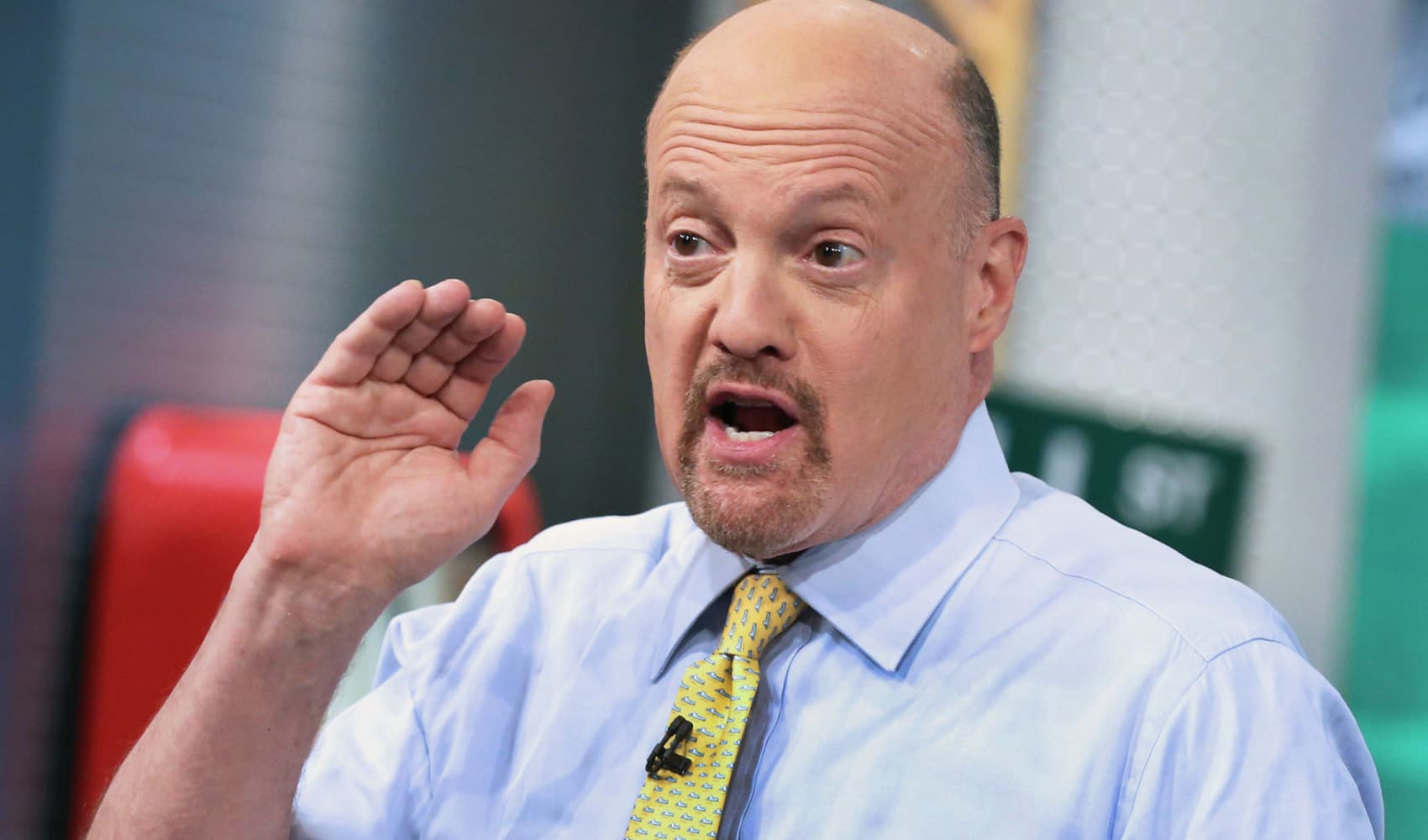
The CEO-to-worker pay gap has expanded exponentially over the past several decades.
The Economic Policy Institute (EPI) estimates that CEO compensation has grown 1,322% since 1978, while typical worker compensation has risen just 18%. In 2020, CEOs of the top 350 firms in the U.S. made $24.2 million, on average — 351 times more than a typical worker.
A 2019 Institute for Policy Studies report estimates that 80% of S&P 500 companies pay their CEO over 100 times more than they pay their median worker. That means it would take 100 years for the average employee at one of these companies to earn what their CEO makes in a year.
This kind of inequality is creating anxiety for families across the country and across the political spectrum. According to Pew, a majority of Americans think future generations will be financially worse off.
Get Southern California news, weather forecasts and entertainment stories to your inbox. Sign up for NBC LA newsletters.
CNBC Make It recently spoke with Lawrence Mishel, a distinguished fellow at the EPI about why the CEO-to-worker pay gap is expanding and what happens if nothing is done to close it.
How did we get here?
"CEO compensation took off a lot in the 1990s. It did so as the stock market boomed and it's basically a market that I believe is out of control. It's what you could call a Lake Wobegon market," says Mishel, referencing the NPR show "A Prairie Home Companion" which included a regular segment from host Garrison Keillor called "The News from Lake Wobegon," a fictional town "where all the women are strong, all the men are good-looking, and all the children are above average."
Money Report
Mishel's point is that everyone in Lake Wobegon thinks they're above average, just as every company thinks that their CEO should be compensated above average.
"Firms believe that they're an important place and they want a great executive. And if you have a great executive, then they certainly should be paid above average," explains Mishel. "Now, if every firm decides that they're going to pay their executive above average, and you look at what the pay of other executives are in firms similar to yours and you make sure that it's more, over time, it just ratchets up and up and up and up."
However, Mishel points out that salary makes up a relatively modest percentage of how much CEOs typically earn.
"CEO compensation in our study reflects wages, bonuses and long-term incentives, but most importantly, the stock options that a CEO has cashed in each year, as well as any invested stock," he says. "Stock-related compensation comprises around 85% of CEO compensation."
Stock-related compensation is a key reason why CEOs earn so much more than even high earners.
"It used to be that in the 1950s, 60s, and 70s, CEOs made 3.3 times what a top 0.1% earner made. Now, it's more than six times," says Mishel. "CEOs now are making 351 times that of a typical worker, but back in 1978, it was only 31 times. In 1989, it was 61 times."
Mishel also mentions six potential reasons for why typical worker wages have not increased as quickly as typical CEO compensation: high unemployment (which forces workers into accepting the lowest wages possible), globalization (which allows companies to find the cheapest workers in the world), the erosion of unions (which makes it harder for workers to collectively bargain), low labor standards (including a low minimum wage), the increase in non-compete clauses (which makes it hard for workers to find better wages in their industry) and domestic outsourcing (like shifting to a workforce of freelancers).
"Wages and benefits have not grown very much in the last 40 years. It has grown far less than what the economy produced," he says, referencing research that found worker productivity has increased 3.5 times faster than average worker pay since the late 1970s.
Does increasing CEO pay increase performance?
Supporters of high executive pay often suggest that shareholders and board members choose to pay CEOs high sums in hopes that an expensive but talented, dedicated or ruthless CEO might help increase share value.
However, "I don't think there's much evidence that paying CEOs more gets better performance," says Mishel. "When you look over this last 40 years, you can see how much profitability increased, you can see how much the stock market rose, and CEO compensation grows far, far more than that — 60%, more than the rise in the stock market."
In fact, a 2016 report from financial services company MSCI Inc. found companies with the highest compensated CEOs underperformed when compared to their competitors.
"There's this notion that CEO compensation is tied to the stock market so, therefore, a CEO is getting paid for performance because their pay goes up with the stock market. Well, not really so true. The measure of stock price that's incorporated into these performance pay is not whether the stock price of your firm rises more than the stock price of competitors. It's just if the stock price goes up," says Mishel.
"Now, we have lots of things that make the stock market go up, things that have nothing to do with executive performance. When Trump gave huge tax cuts to corporations, that was a lift to the stock market. CEOs made more money. It's not because of any CEO's performance. If interest rates are low and more money is flowing into the stock market, the stock market may go up. It's not executive performance."
He continues, "Does it take 350 times a typical worker for you to get out of bed in the morning and do a good job when you used to get 30 times back in the 1960s? No. I think [CEOs] would still get out of bed in the morning and do a good job out of pride, because that's what they were trained to do. And it's still a lot of money!"
Potential consequences and solutions
There is a wide range of theories about what will happen if inequality continues to expand at the current rate.
In a now-famous 2014 Politico article titled "The Pitchforks Are Coming… For Us Plutocrats," Nick Hanauer, a billionaire entrepreneur and self-identified "proud and unapologetic capitalist" says he worries that inequality is increasing at such a fast rate that the U.S. is "becoming less a capitalist society and more a feudal society"
"Unless our policies change dramatically, the middle class will disappear, and we will be back to late 18th-century France. Before the revolution," Hanauer writes, predicting that pitchforks and guillotines are what is next if CEOs like him don't speak out against inequality.
And many have expressed disdain for billionaire entrepreneurs such as Jeff Bezos, Richard Branson and Elon Musk who have invested heavily in trips to space amid mounting inequality. Some even fear such billionaires will amass enough wealth to abandon the planet.
Mishel says these outcomes are unlikely and instead says that he is "hopeful."
"We're now in a moment where workers are feeling agency and demanding, more — better jobs," he says, adding that despite identifying as a "longtime critic" of both political parties "what the current administration and the Congress are doing seems to be centering the needs of workers to get ahead."
Mishel continues, "The very first bill passed was the American Rescue Plan, which put us on a trajectory to have full employment by the end of 2022. We're expecting unemployment to be 3.5% in the fall of 2022. That's pretty good."
He also references provisions in the reconciliation bill currently on the Hill that would create monetary penalties for companies that violate workers' union rights and a Biden executive order that asks the FTC to implement rules to limit or ban employers from forcing non-compete clauses on employees.
"I think we see policy trying to put the thumb on the scale for workers, so as to give them a better balance relative to employers. Now, if workers are able to assert themselves and do assert themselves, and reap results, that's going to make it harder for the CEOs to rake it in," says Mishel. "These are all really powerful things and so I imagine that if this agenda is legislated, that we will see robust wage growth for the vast majority. And we will see inequality decline over the next five years."
Don't miss:
- Yes, employers can require workers get vaccinated—and it might help them attract top talent
- Student loan borrowers from these states owe the most on average
- More than 40% of interns are still unpaid—here's the history of why that's legal






